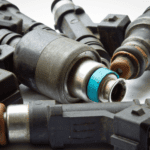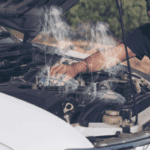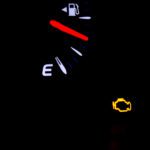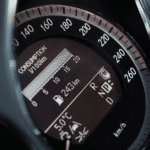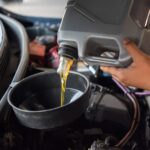Running an engine out of oil will always end in an expensive disaster. If you’ve found your engine is out of oil and need to know if your engine is damaged, you’re in the right place. I’ve spent many years repairing this exact issue, which happens much more than it should.
This article covers how you will tell if the engine is damaged from running with no oil and what to do if you find yourself in this situation.
To be clear, if you suspect the engine is damaged from no oil, you should immediately switch off the engine. Even though many ways to diagnose a problem involve the engine running, we do not recommend doing this. Without taking the motor apart, it’s impossible to say which components are damaged, and you will cause more damage by running it.
How to Tell if an Engine Is Damaged From No Oil
If the engine fails to turn over, it will be seized and probably a complete write-off. However, if the motor still runs, there may be some noticeable issues.
Noise
The most noticeable problem with an engine damaged from running with no oil is the increased and changed engine noise. You will hear the grating noise of scored metal components and damaged bearings being forced to rotate in the bottom of the motor. Other noises to listen for are consistent knocking and tapping noises.
An engine with a loud tapping noise is a sign that the top of the engine may have a problem; valves and springs open and close rapidly; if these become dry, they can break, which you will hear when revving the engine.
If you notice any of the above noises or changes in the engine tone, the car should be switched off immediately.
Burning smell
Regardless of the oil level, if engine components have become scored or damaged, you may sense a burning smell. The burning is the friction and scoring getting worse as damaged engine components come into contact.
Also, oil seals will dry out. If you just added oil and continued running the engine, oil would enter the cylinder, where it would be combusted, and the smell would be apparent.
Overheating
One of the engine oils’ jobs is to keep engine temperatures down by keeping moving components lubricated. Suppose there is no oil in an engine; the rotating components dry, creating friction. Friction means increasing heat temperatures.
Eventually, the heat in the engine will rise to levels at which any remaining oil will be burnt away, which will cause the engine to seize. At this point, the engine will be damaged and probably need replacing. This is a worst-case scenario, of course.
Overheating will usually be one of the first signs that the engine oil is dangerously low, at which point topping up may be all that’s required. But a constantly overheating engine with the correct oil level may indicate a damaged component caused by running low oil levels or something else entirely.
Dashboard lights
The check engine light or low oil pressure light on the dashboard signifies the engine has an issue. If the engine has been run with no oil, the low oil pressure light indicates that damage is probably already done to a related component. But it would be impossible to say if it is an internal engine or an external supporting part without more investigation work.
Poor performance
A damaged engine will not travel through the revs smoothly and will not perform as it did, even if you did top the oil level back up. You may notice issues like the engine hesitating on acceleration or a jerking sensation when driving.
Any changes in engine performance or acceleration indicate there may be some severe internal engine damage, and you should stop driving.
What Happens to an Engine Without Engine Oil?
If you continued to run an engine without oil, it would eventually seize solid. The engine would shut off, the wheels would lock up, and lots of smoke would bellow. If you managed to get to this point, multiple components in that engine would fail in various ways. Which include:
- Block cracking
- Pistons and rings fusing to the cylinder
- Crank wear
- Bearings score
- Camshaft lobes wear
- Valve springs break
These are just a few of the major examples of damage that occur.
How Long Can You Run an Engine Without Oil?
An engine can fail in seconds without oil, but it can also last upwards of 30 minutes. An engine relies on being lubricated to keep friction and heat levels down. Depending on how much lubrication was left on these components will depend on how long it will last, but there are no guarantees. There are lots of YouTubers who have carried out such tests, so you don’t have to.
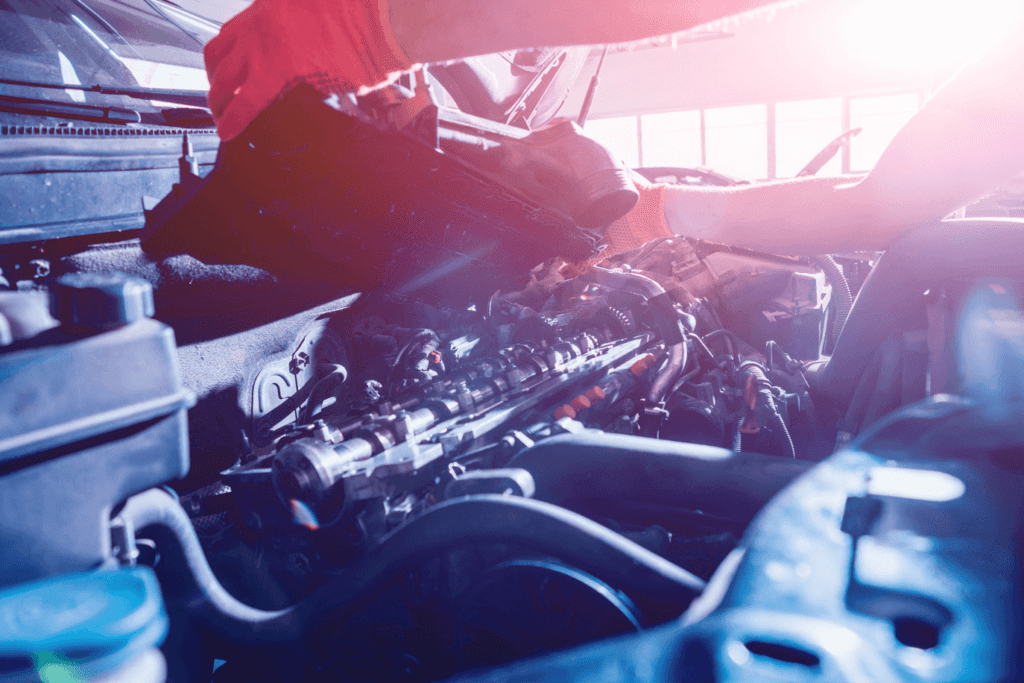
What Will Cause an Engine to Run out of Oil?
An engine won’t necessarily run out of oil in a few hours; these types of issues usually happen slowly, which highlights the importance of service schedules and regular oil changes. The reasons I’ve found engines had run out of oil on investigation are:
- Oil leak – This could come from multiple places: the sump or plug, oil filter, oil cooler pipes, etc
- Running low on oil – Running the engine dangerously low on oil will result in high engine temperatures where the remaining oil could burn away.
- Using incorrect viscosity oil – An incorrect oil weight could force its way past engine seals and into the combustion chamber; it will get consumed relatively quickly.
- Engine combusting oil – Leaking piston seals would allow oil into the cylinder, which will be burnt during combustion.
How to Fix Your Engine After Running It Without Oil
Fixing an engine run without oil can be complicated and expensive; the lack of oil can cause significant damage to many engine components.
It is rare to find an engine that has run even for a few minutes without oil, topped back up with oil, and the engine will run sweet after. Although, depending on the age and the value of the vehicle against the cost of repair, filling back up with oil and driving until the engine fails might be the best option, it is not recommended.
Here are some general steps of what to do and what will happen if your motor has been damaged due to low or no oil:
- Stop driving your car immediately if you suspect your engine has been damaged. Running the engine without oil can cause severe damage, and continuing to operate the vehicle can worsen the issue.
- Have your car towed to a mechanic specializing in engine repair. In most cases, you will need help fixing the engine. Engine repair or replacement requires expert knowledge and tools.
- Once in the garage, the mechanic will thoroughly inspect the engine to determine the extent of the damage. Depending on the severity of the damage, the mechanic may recommend an engine rebuild or a complete engine replacement.
- If an engine rebuild is recommended, the mechanic will need to disassemble the engine and replace any damaged components, such as bearings, pistons, rings, and gaskets. Sometimes, the engine block or cylinder head may need to be machined or replaced.
- After the repair or replacement, it is essential to maintain proper oil levels and change the oil regularly to ensure the longevity of your engine. Follow your car manufacturer’s recommended oil change intervals, and check your oil levels regularly to catch any leaks or other issues early on.
Conclusion
If you suspect the engine may be damaged from running it with no oil, switch it off. An engine can destroy itself past repair in a matter of seconds.
It is easier to repair an engine with knowledge and the right tools, so it is much better to have a trained mechanic inspect the damage and provide a suitable repair. Unfortunately, regardless of how bad the damage is, it will be an expensive repair.


